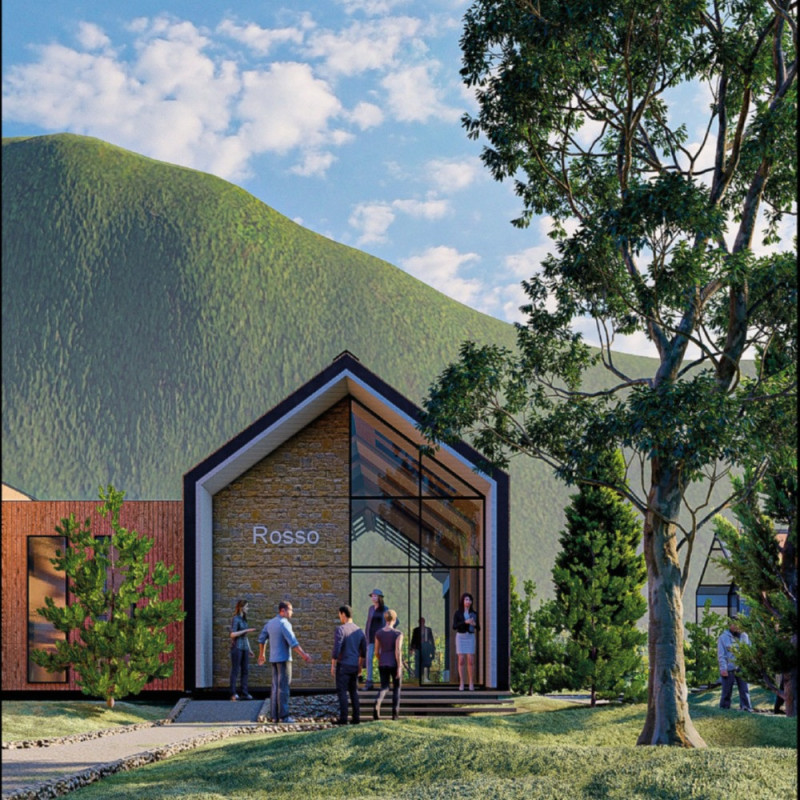5 key facts about this project
The TILI Eco Village is designed to connect people with nature through an experience that combines agriculture and tourism. Located in a lush landscape, the village has five Eco-Challets, a central Wine-tasting Pavilion & Bistro, and a Sunset Pavilion. Each building is arranged within a modular grid system, allowing flexible use of space while minimizing disruption to the environment during construction.
Design Concept
The emphasis of the village is on harmonizing human activities with the natural surroundings. By preserving mature trees and reducing the overall building footprint, the layout encourages interaction between the structures and their greenery. This careful design promotes social connections and enhances the visitor experience.
Sustainable Practices
At the heart of the Eco Village is a strong commitment to sustainability. Spaces are designed to maximize natural light, fostering energy efficiency and creating comfortable environments. By integrating existing plants and landscape features, the architecture respects the ecological health of the site, while also providing opportunities for visitors to learn about sustainable farming and winemaking.
Community Engagement
The Wine-tasting Pavilion serves a vital role by hosting educational programs led by sommeliers. This space is designed for group tastings and private meals, allowing guests to engage with local agricultural traditions. It aims to foster connections between visitors and the region's farming practices while promoting a thoughtful approach to food and beverage consumption.
The project utilizes durable materials that reflect a focus on sustainability. The choice of these materials ensures long-lasting performance and consistency in appearance throughout the village. A significant aspect of the design is how natural light permeates the interiors, creating bright spaces that link indoors and outdoors, fostering a sense of peace and continuity.





















































